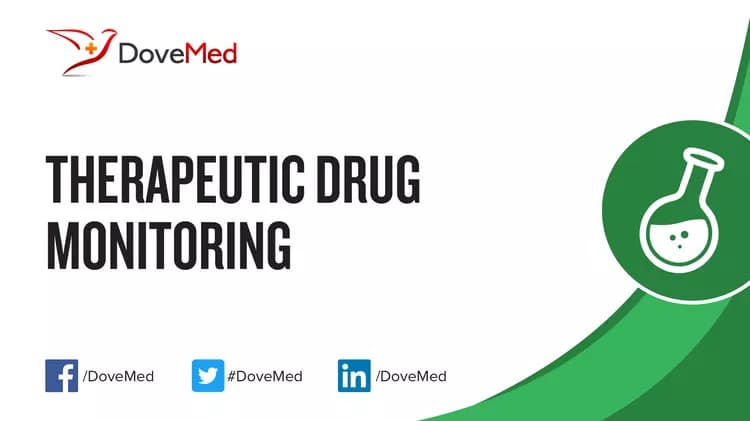What are the other Names for this Test? (Equivalent Terms)
- TDM (Therapeutic Drug Monitoring)
What is Therapeutic Drug Monitoring? (Background Information)
- Any drug that is administered to a patient is effective at a dosage range, referred to as the therapeutic dose level. When the administered dose exceeds this level, the drug may be toxic or have unwanted side effects
- The ratio of the toxic dosage to the therapeutic dosage of a drug is referred to, as its therapeutic index
- Some medications have narrow therapeutic indices. Some medications may need to be administered for a very long period of time. The pharmacokinetics of one drug (i.e. what the body does to a medicine, namely, how much is absorbed, how fast it is absorbed, the rate at which it is metabolized and excreted, etc.), might be different for different individuals
- In all these cases, in order to achieve a desired blood concentration of the drug and to prevent any toxicity, the blood levels may have to be monitored periodically and the dosage adjusted accordingly. This is referred to as Therapeutic Drug Monitoring (TDM)
Some of the medications/drugs that are commonly monitored include:
- Digoxin - used during rhythm disturbances of the heart and sometimes, for heart failure as well
- Vancomycin - an antibiotic drug
- Drugs used to treat epilepsy (recurrent seizures)
- Lithium - used to treat bipolar disorder
- Immunosuppressant medications
What are the Clinical Indications for performing the Therapeutic Drug Monitoring?
Clinical indications for Therapeutic Drug Monitoring include:
- The physician may order a blood test to check for the level of a drug, when starting a patient on a medication, with a narrow therapeutic index. This may be done frequently in the beginning and less regularly, once a steady blood concentration has been achieved
- The test may also be conducted after drug administration, when using a certain drug known to have erratic absorption into blood, or if the drug is known to be handled by different people differently
- TDM may also be performed in the presence of other comorbidities, or other medication use that may affect the blood levels of the drug
- Testing for a drug level may also be ordered, if an individual shows signs and symptoms of toxicity, or if there is not much response to treatment
How is the Specimen Collected for Therapeutic Drug Monitoring?
Sample required: Blood
Process: Blood sample is drawn through a needle inserted into the vein (arm).
Preparation required: Generally none
Note: However, the testing should be done at specific times, in relation to the drug dosage schedule. The physician will offer advice on the optimum time for collection of test sample.
What is the Significance of the Therapeutic Drug Monitoring Result?
- Based on measurements of the blood levels of the drug, the physician will adjust dosage and drug schedule, until optimum levels are achieved
The laboratory test results are NOT to be interpreted as results of a "stand-alone" test. The test results have to be interpreted after correlating with suitable clinical findings and additional supplemental tests/information. Your healthcare providers will explain the meaning of your tests results, based on the overall clinical scenario.
Additional and Relevant Useful Information:
Certain medications that you may be currently taking may influence the outcome of the test. Hence, it is important to inform your healthcare provider, the complete list of medications (including any herbal supplements) you are currently taking. This will help the healthcare provider interpret your test results more accurately and avoid unnecessary chances of a misdiagnosis.
Related Articles
Test Your Knowledge
Asked by users
Related Centers
Related Specialties
Related Physicians
Related Procedures
Related Resources
Join DoveHubs
and connect with fellow professionals


0 Comments
Please log in to post a comment.